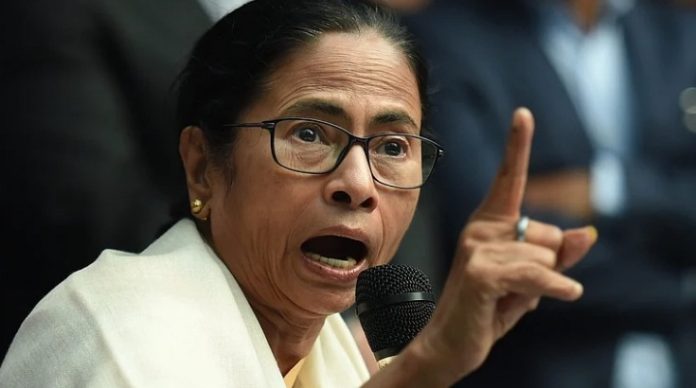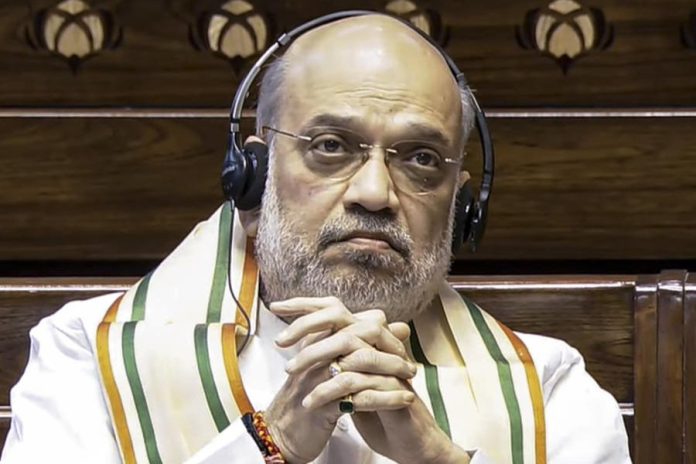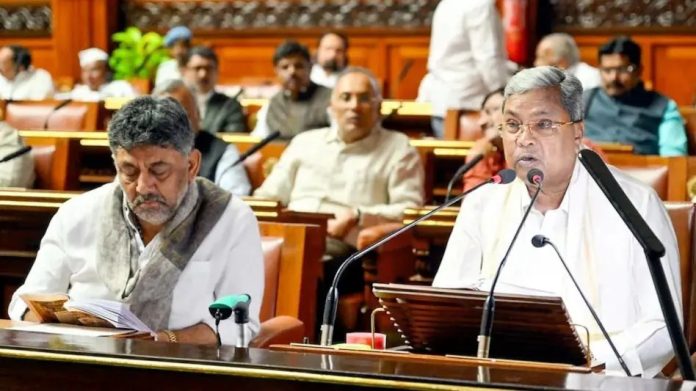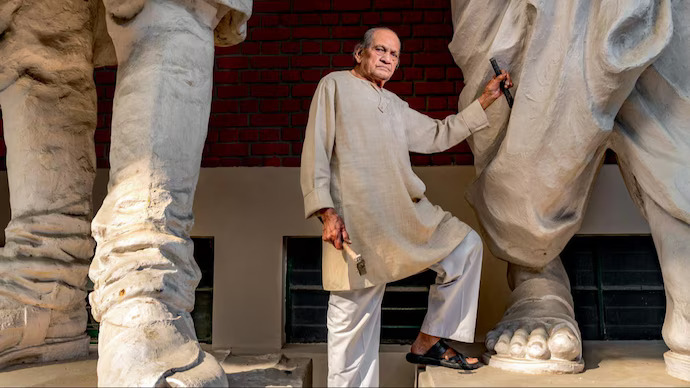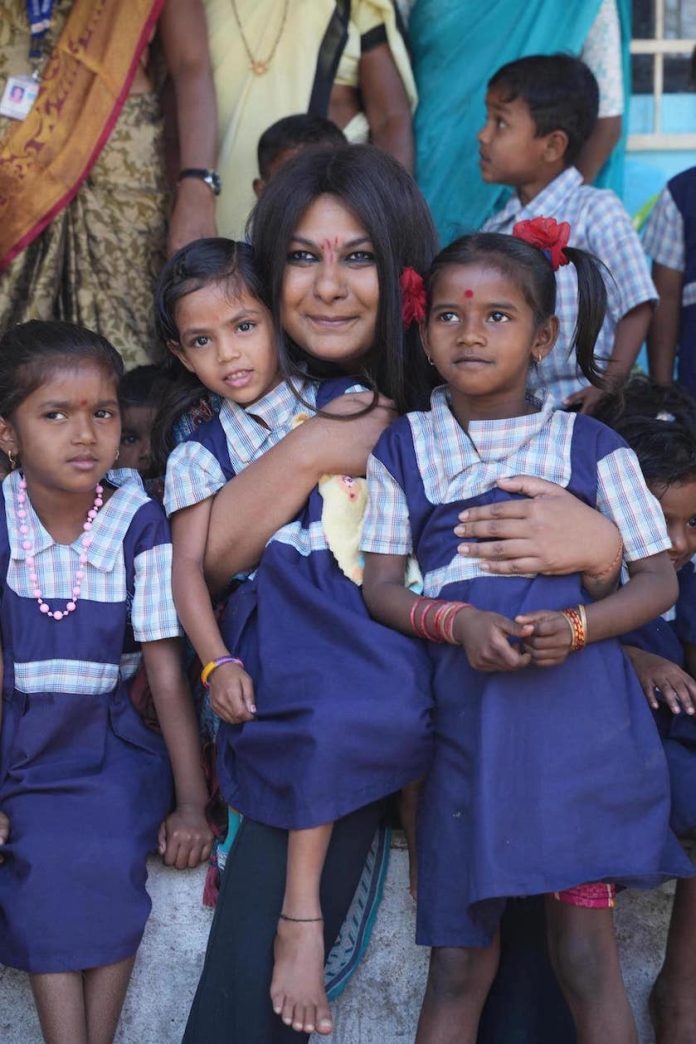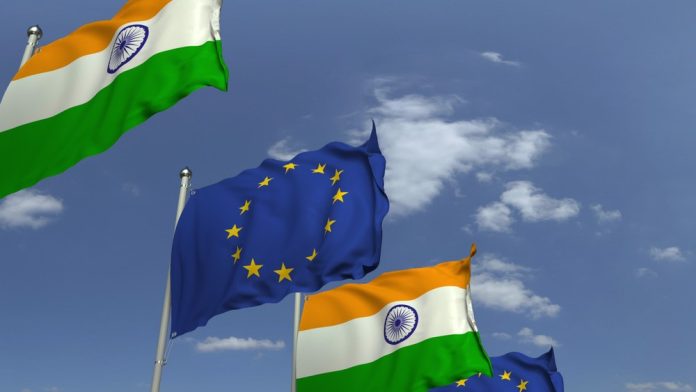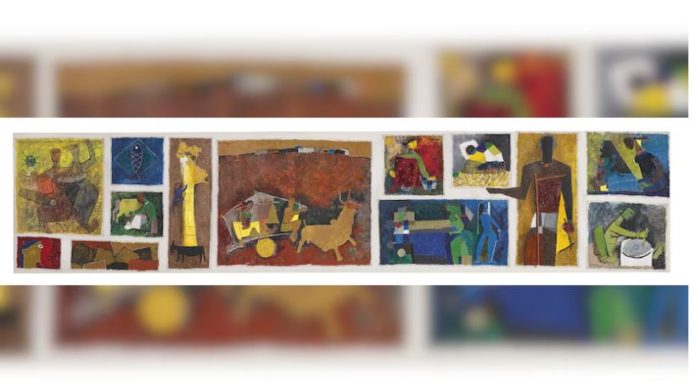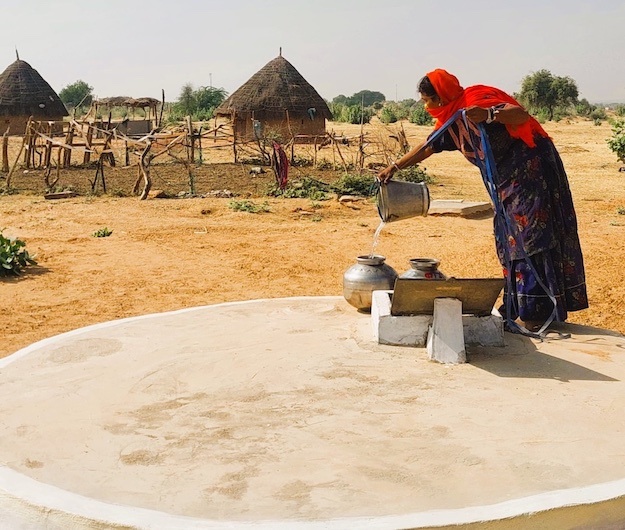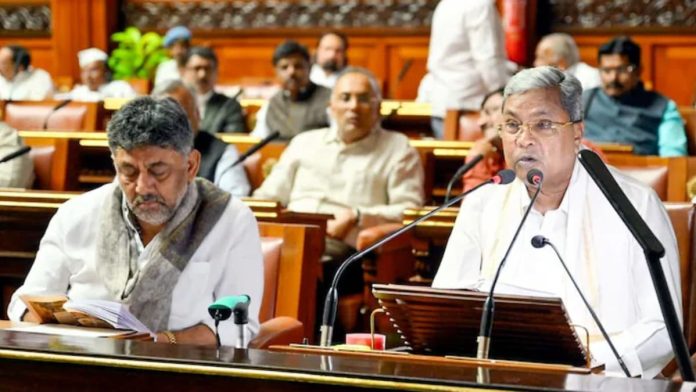Amit Shah Highlights National Security Achievements, Criticises UPA Government
Union Home Minister Amit Shah on Friday addressed the Rajya Sabha, highlighting significant strides made by the Modi government in improving national security, particularly in Jammu and Kashmir, and tackling legacy security challenges left by the previous UPA government.
Amit Shah Slams Opposition
Shah began by criticising the Congress-led UPA administration for its mishandling of critical security issues, such as terrorism in Jammu and Kashmir, insurgencies in the Northeast, and Maoism. He referred to these challenges as “legacy issues” that had plagued the country for decades. “When Narendra Modi Government was elected to power in 2014, we received several legacy issues from prior to 2014. The security and development of this country were always challenged due to three main issues. These three issues caused obstruction to the peace of the country, raised questions on the security of the country and obstructed the development pace of the country for almost 4 decades,” he said. Shah noted that these problems had resulted in the deaths of nearly 92,000 citizens over the past 40 years, but asserted that under the Modi government, “well-planned efforts” were made to address them.
The Home Minister took particular aim at the situation in Jammu and Kashmir, where he claimed the Modi administration had successfully reduced terrorism. “After the removal of Article 370, the involvement of Indian youth with terrorists has almost disappeared. Ten years ago, terrorist glorification was common, and funeral processions would take place. But now, when terrorists are killed, they are buried on the spot. Relatives of terrorists who once enjoyed government perks have been ruthlessly removed from government posts to send a strong message,” he stated. Shah pointed out that the region saw a dramatic drop in terror-related incidents since 2014, with 7,217 incidents recorded from 2004 to 2014, compared to just 2,242 from 2014 to 2024. This, he argued, was a clear result of the government’s “zero-tolerance” policy against terrorism.
Further emphasising the security improvements, Shah highlighted the successful conduct of the 2024 Jammu and Kashmir elections, marking the first since the abrogation of Article 370 in 2019. He noted that not a single bullet was fired, and there were no complaints of booth rigging. “Once, leaders from Delhi would go there to receive winning certificates while citizens stayed home. Now, 98 percent of people cast their votes. It is PM Narendra Modi who laid the foundation of democracy in Kashmir,” Shah said.
Shah Talks About J&K and Its Employment Boosting
Shah also discussed the government’s commitment to boosting employment and investment in Jammu and Kashmir. He noted that between 2019 and 2024, 40,000 government jobs had been provided, and 1.51 lakh self-employment opportunities created. Additionally, investments worth Rs 12,000 crore had already been realised, with agreements worth Rs 1.1 lakh crore signed. These initiatives, Shah argued, were helping to create a more stable and prosperous region.
On the subject of national security, Shah stated that the government had successfully taken a firm stance against terrorism, particularly in relation to Pakistan. He referred to the surgical strikes and airstrikes conducted by India after the deadly attacks in Uri and Pulwama, contrasting them with the perceived inaction of previous governments. “Terrorists used to infiltrate from neighbouring country. PM Modi has started a zero-tolerance policy against terrorism. Attacks happened in our time in Uri and Pulwama, but we retaliated with surgical strikes and airstrikes in Pakistan,” he said, adding that India had now joined the ranks of countries like the USA and Israel in adopting a strong approach to border security.
Shah Discussed About Eradicating Drugs Trade
Shah also shared that India is on the verge of developing an indigenous anti-drone solution, which is expected to be available within six months. This, he claimed, would serve as a testament to the country’s growing capabilities in defense technology. Additionally, he mentioned that drones were now being used to track poppy cultivation and tackle the illegal drug trade. “In the last five years, 23,000 kg of synthetic drugs worth more than Rs 14,000 crore have been destroyed and disposed of,” he said. He reiterated the government’s resolve to eliminate the drug trade, emphasising that the money generated from such activities often funded terrorism.
Shah’s address was a firm defense of the Modi government’s handling of national security, especially in the face of challenges left by previous administrations, and underscored the administration’s commitment to maintaining peace and security across the nation.
Karnataka Honey Trap: कर्नाटक – मंत्रियों का हुआ हनी ट्रैप? जांच के आदेश
कर्नाटक सरकार के मंत्री के एन राजन्ना ने दावा किया है कि राज्य में केंद्रीय मंत्रियों समेत 48 नेताओं को हनी ट्रैप (Karnataka Honey Trap) में फंसाया गया है। राज्य के गृह मंत्री ने इस मामले में जांच के आदेश दे दिए हैं। अब कर्नाटक की राजनीति में हनी ट्रैप के मामले ने तूल पकड़ लिया है। राज्य के विभिन्न दलों के विधायकों ने गुरुवार को आरोप लगाया है कि कर्नाटक में राजनीतिक लक्ष्य हासिल करने के लिए हनी ट्रैप की कोशिश की जा रही है। राज्य के मंत्री के एन राजन्ना ने सदन में ये भी दावा कर दिया है कि कर्नाटक में 48 लोग हनी ट्रैप का शिकार हुए हैं और उनके अश्लील वीडियो शेयर किए गए हैं। राजन्ना ने ये भी दावा किया है कि कई केंद्रीय मंत्री भी इसके जाल में फंसे हैं। हनी ट्रैप की शिकायत के बाद कर्नाटक के गृह मंत्री जी परमेश्वर ने इन मामलों की हाई लेवल जांच का आश्वासन दिया है।
कर्नाटक हनी ट्रैप पर मंत्री के एन राजन्ना ने क्या बताया?
कर्नाटक के सहकारिता मंत्री के एन राजन्ना ने कहा- ‘‘लोग कहते हैं कि कर्नाटक में सीडी और पेन ड्राइव बनाने वाली फैक्टरी है। मुझे पता चला है कि राज्य में 48 लोगों की सीडी और पेन ड्राइव मौजूद हैं। यह नेटवर्क पूरे भारत में फैला हुआ है और कई केंद्रीय मंत्री भी इसके जाल में फंसे हैं।’’ इससे पहले राज्य के लोक निर्माण मंत्री जारकीहोली ने भी दावा किया था कि राज्य के एक वरिष्ठ मंत्री पर हनी ट्रैप के दो असफल प्रयास किये गये हैं। जारकीहोली ने पत्रकारों से कहा कि यह कर्नाटक में ‘हनी ट्रैप’ की पहली घटना नहीं है।’
Karnataka Honey Trap: गृह मंत्री ने दिया जांच का आश्वासन
हनी ट्रैप के मुद्दे पर मचे बवाल पर राज्य के गृह मंत्री जी परमेश्वर ने मामलों की उच्चस्तरीय जांच का भरोसा दिया है। गृह मंत्री ने विधानसभा में कहा, ‘‘यदि हमें अपने सदस्यों की गरिमा बनाए रखनी है तो हमें ऐसी घटनाओं पर रोक लगानी होगी। यह एक गंभीर मुद्दा है।’’ उन्होंने कहा, ‘‘मैं इसकी उच्चस्तरीय जांच का आदेश दूंगा।’’
Karnataka Honey Trap: सीएम सिद्धारमैया क्या बोले?
कर्नाटक विधानसभा में विपक्ष ने मंत्रियों और राजनीतिक नेताओं को हनीट्रैप में फंसाने के प्रयास के आरोपों की न्यायिक जांच की मांग की है। इस मांग पर मुख्यमंत्री सिद्धारमैया ने कहा- “एक बार शिकायत दर्ज होने के बाद, जांच की जाएगी। किसी को बचाने का कोई सवाल ही नहीं है। गृह मंत्री डॉ जी परमेश्वर ने पहले ही उच्च स्तरीय जांच के आदेश दे दिए हैं।” Karnataka News
भाजपा ने क्या कहा?
कर्नाटक के एक मंत्री पर हनी ट्रैप के प्रयास के आरोपों पर, भाजपा नेता सी.टी. रवि ने कहा- “सतीश जरकीहोली सबसे वरिष्ठ नेताओं में से एक हैं। वह सबसे प्रमुख नेताओं में से एक हैं। यदि उन्होंने बयान दिया है तो यह सच बात होगी। आरोप लगाने वाला कोई आम व्यक्ति नहीं है बल्कि कांग्रेस सरकार के वरिष्ठ नेता हैं। इसलिए इस मामले में गंभीर जांच होनी चाहिए। मैं मुख्यमंत्री से अनुरोध करता हूं कि इस मामले में जांच करने के लिए एक विशेष टीम गठित की जाए और इसकी जांच हो।”
Veteran Sculptor Ram Sutar to Receive Maharashtra Bhushan Award 2024
Renowned Indian legendary sculptor Ram Sutar known for his iconic works across India and abroad, will be bestowed with Maharashtra’s highest civilian award, the Maharashtra Bhushan Award 2024.
Chief Minister Devendra Fadnavis made an announcement on Thursday in the Assembly. Even at the age of 100, Ram Sutar remains actively engaged in his art and is widely acclaimed for his exceptional sculpting skills both in India and abroad.
Award Announcement
This follows the Maharashtra government’s decision to confer the prestigious award during a selection committee meeting on March 12, 2025. The prestigious award includes a cash prize of ₹25 lakh, a citation, a memento, and a shawl. CM Fadnavis also stated that Sutar’s dedication to his craft and hardwork, even at the age of 100, serves as an inspiration for many generations to come.
The Man Behind India’s Most Iconic Sculptures
Ram Sutar is an internationally acclaimed sculptor who has sculpted over 50 grand sculptures so far. His most notable creation, the Statue of Unity (a statue of Sardar Vallabhbhai Patel), is the tallest statue in the world.
Currently, he is working on:
-
Statue of Equality (Dr. Babasaheb Ambedkar Memorial) at Indu Mill, Mumbai
-
Chhatrapati Shivaji Maharaj Memorial, which will be 400 feet tall
The uniqueness of Ram Sutar’s art lies in his ability to depict realism and human emotions vividly in his sculptures. He firmly believes that “sculptures are testimonials of history,” and through his art, he continues to preserve historical and cultural heritage.
Moment of Pride for the Art World
For Centenarian Ram Sutar, this honor is not just a matter of pride for Maharashtra but also for art connoisseurs across India. Chief Minister Devendra Fadnavis stated, “Ram Sutar’s art will continue to inspire future generations.” His work has received recognition both nationally and internationally.
CSR News: Maharashtra’s First Nand Ghars Open in Thane, Transforming the Anganwadi Ecosystem for Women and Child Development
Marking a transformative milestone in child welfare and women’s empowerment, Vedanta’s Nand Ghar initiative has officially entered Maharashtra with 25 centers in Thane, Mumbai. A flagship project of the Anil Agarwal Foundation, Nand Ghar, a modernized Anganwadi, is redefining rural development by providing early childhood education, facilitating nutrition, healthcare, and skill development opportunities for women. Designed in collaboration with the Ministry of Women and Child Development (MoWCD), the initiative aims to uplift 7 crore children and 2 crore women across India’s 13.7 lakh Anganwadis, integrating rural communities into the mainstream of progress.
In addition to enhanced infrastructural facilities, Nand Ghar incorporates smart education tools, interactive e-learning modules, BaLA designs, and smart TVs to make learning engaging for children aged 3-6 years. Each center is equipped with child friendly furniture, access to electricity, safe drinking water, and hygienic sanitation facilities, fostering a safe and nurturing environment. Beyond education, Nand Ghars combats malnutrition by facilitating fortified meals to children and essential nutritional support to pregnant and lactating mothers. Integrated healthcare services, including immunization drives and routine check-ups, further strengthen community well-being.
In an industrially progressive state like Maharashtra, the need for modernized Anganwadis remains significant. The launch of the first Nand Ghars in Maharashtra represents a significant leap forward in tackling malnutrition, ensuring school readiness, and equipping women with financial literacy and entrepreneurial skills. With over 2,000 women and children already benefiting, Vedanta’s Nand Ghar is laying the groundwork for a stronger, more inclusive Maharashtra, where every child has a fair start in life and every woman has the tools to shape her future.
Priya Agarwal Hebbar, Non-Executive Director, Vedanta Ltd., and Chairperson, Hindustan Zinc Ltd., visited the Vaghiwali Nand Ghar in Thane, engaging with the community members and children.
Reaffirming Vedanta’s unwavering commitment to social transformation, she remarked, “It is incredible to see Nand Ghar take root in Maharashtra, marking a new chapter in our journey of transformation. These centers are enablers of change, ensuring that children receive quality early education and nutrition, and women become self-reliant through upskilling initiatives. With the launch of Nand Ghar in Maharashtra we are committed to scaling this model across the state, creating a lasting impact on communities and transforming lives.”
To empower women, Nand Ghar hosts specialized training sessions focused on skill-building, financial literacy, and entrepreneurship, opening doors to self-reliance and economic independence.
Nand Ghar has developed over 7500 centers across 15 states, impacting millions of children and women through smart education, nutritious meals, healthcare, and skill training. In Maharashtra, the project aims to expand its reach with the development of more Nand Ghars. With ongoing collaboration between the government and private sector, Nand Ghar is paving the way for a brighter, self-reliant future for communities across the state.
Disclaimer: This media release is auto-generated. The CSR Journal is not responsible for the content.
M.F. Husain’s Painting Gram Yatra Breaks Records, Sells for Rs 118 Crore at Christie’s Auction
A monumental painting by legendary Indian artist Maqbool Fida Husain, titled Untitled (Gram Yatra), has set a new record for Modern Indian Art, fetching an astonishing $13.7 million (around Rs 118 crore) at a Christie’s auction in New York on March 19. This sale not only marks a significant achievement in the art world but also makes it the first Indian artwork to cross the Rs 100 crore mark at auction.
The painting, created in 1954, is a vivid tribute to rural India, capturing 13 distinct vignettes depicting life in the countryside. Measuring nearly 14 feet in length, it was originally showcased at the All India Fine Arts & Crafts Society (AIFACS) exhibition in New Delhi in 1954. After being acquired by Norwegian doctor Leon Elias Volodarsky, it remained in Europe for decades, largely out of the public eye. Volodarsky, an avid art collector, bought the piece for just 1,400 rupees, a modest sum compared to its current value.
Indian Art Market Witnesses Historic Surge
Following Volodarsky’s death, the painting was donated to Oslo University Hospital in 1964, where it hung in a private corridor for years. The work finally surfaced at Christie’s auction house after a tip-off about its location, and the rest, as they say, is history. The sale was a fierce bidding war, with Indian art collector and philanthropist Kiran Nadar reportedly acquiring the piece after a heated contest.
The previous record for a Husain painting was $3.1 million (about Rs 26 crore) for Untitled (Reincarnation), sold last year. The staggering price of Gram Yatra represents a 450% increase in Husain’s auction value, signaling a significant shift in the art market. Experts predict this will influence the pricing of Indian art across the board, boosting the confidence in the country’s art scene.
History of the Painting
Husain, one of India’s most celebrated modern artists, was a founding member of the Progressive Artists’ Group, established in 1947 to break free from European artistic traditions and create a new, uniquely Indian form of modern art. His works, often characterised by vibrant colors, bold figures, and a fusion of cubist and folk styles, continue to inspire and attract attention globally.
Art historians describe Gram Yatra as a critical piece in Husain’s career, exemplifying his signature boldness, bright palette, and unique narrative style. The sale of this iconic painting has not only elevated Husain’s standing but also placed a spotlight on the growing market for Indian art, signaling greater recognition for artists from the region. This sale is a true “homecoming” for Husain and his work, as it finally receives the recognition it deserves on the global stage.
CSR News: Initiative Drives Water-Secure Future for Drought-Prone Villages and Disadvantaged Communities through WASHE programme
On World Water Day, Standard Chartered Bank, India, announced its plan to make total of 32 districts water secure by end of 2027 through its focussed efforts on providing clean water access, sustainable solutions and education while making a transformative change in the community.
The Bank, as part of this initiative, will build additional 1,253 water harvesting structures to benefit over 9000 households across India helping them get clean drinking water. The initiative is present in Chhattisgarh, Delhi, Gujarat, Haryana, Jharkhand, Karnataka, Ladakh, Madhya Pradesh, Maharashtra, Odisha, Punjab, Rajasthan, Tamil Nadu, Uttar Pradesh, Uttarakhand and West Bengal.
Standard Chartered Bank, through its WASHE (Water, Sanitation, Hygiene and Education) programme has been committed to create a water-secure future for communities in drought-prone areas with strategic scientific support and integrated water resource management. The programme spreads across difficult topographies and terrains from enhancing water availability through spring shed management and artificial glaciers in Ladakh and Uttarakhand to leveraging on hyper local innovations for water harvesting in drought prone areas of Rajasthan.
The WASHE programme currently supports 369 drought-prone villages across multiple states by providing essential access to clean and safe drinking water. With a capacity to generate 1.3 billion litres of freshwater annually, the Bank has aided construction of 2,899 water harvesting structures to support over 1.5 million people in these regions, including 700,000 women. This integrated approach addresses both immediate water needs and long-term development goals, ensuring the sustainability of water resources for future generations.
A key achievement in the Bank’s efforts is the establishment of 135 solar-powered water ATMs (water vending machines) in Maharashtra, Rajasthan, Punjab, Uttar Pradesh and Madhya Pradesh, which provide clean drinking water to approximately 2,000 families per unit. These ATMs have revolutionised water access, particularly for communities at risk due to water contamination. These efforts have also positively generated water-based livelihoods for the community and created many water entrepreneurs.
With a focus on environmental sustainability and youth empowerment, WASHE initiatives also treats grey water, with an annual capacity of 500 million litres in Madhya Pradesh and Chhattisgarh.
WASHE programme, so far has enabled irrigation of 2,830 hectares of land, benefiting local farmers and improving agricultural productivity in Maharashtra, Rajasthan, Gujarat, Madhya Pradesh and Tamil Nadu. Additionally, it has trained over 40,000 youth, women and community workers to actively engage in water conservation and sustainable agricultural practices in West Bengal, Odisha, Andhra Pradesh and Madhya Pradesh.
Speaking at the occasion, Karuna Bhatia, Head of Sustainability, India, Standard Chartered Bank, said, “At Standard Chartered, we believe that access to clean water is a fundamental right that drives social and economic progress. Through WASHE, the Bank has made a significant impact in several drought-prone villages by not only addressing immediate water needs but also empowering communities through education, youth engagement, and sustainable resource management.
This programme exemplifies the Bank’s dedication to improving the lives of the people and building a water-secure future for millions of people. With plans to extend its impact by constructing more water harvesting structures, we will continue to uplift communities and foster long-term resilience in regions affected by water scarcity and contamination,” Karuna Bhatia added.
Disclaimer: This media release is auto-generated. The CSR Journal is not responsible for the content.
Karnataka Passes 4% Muslim Quota Bill; BJP MLAs Protest, Tear Copies
The Karnataka Legislative Assembly on Friday passed a bill leading to protests from the BJP leaders. The bill proposes a 4% reservation for Muslim contractors in state’s government tenders. The move was introduced by the Siddaramaiah-led Congress government, However the bill sparked a heated political debate in the assembly. The BJP leaders called it “unconstitutional” and further vowed to challenge it in court.
BJP Protests
The bill was passed amidst the honey trap scandal that has rocked Karnataka politics. Following the passage of the bill, a massive uproar erupted in the Karnataka Assembly. As the Congress government moved forward with the reservation bill, the BJP leaders stormed in the well of the House.
Soon the BJP leaders started chanting slogans, and even climbed onto the Speaker’s seat. Not just that in a very dramatic escalation, the BJP members tore copies of the bill and hurled them toward the Speaker, expressing their fierce opposition over the bill.
Karnataka Assembly adjourned following ruckus in House
Read @ANI Story | https://t.co/nQ7TiKoMkP#Karnataka #Adjourned #Assembly #BJP #Congress pic.twitter.com/r4rrQZMBsE
— ANI Digital (@ani_digital) March 21, 2025

